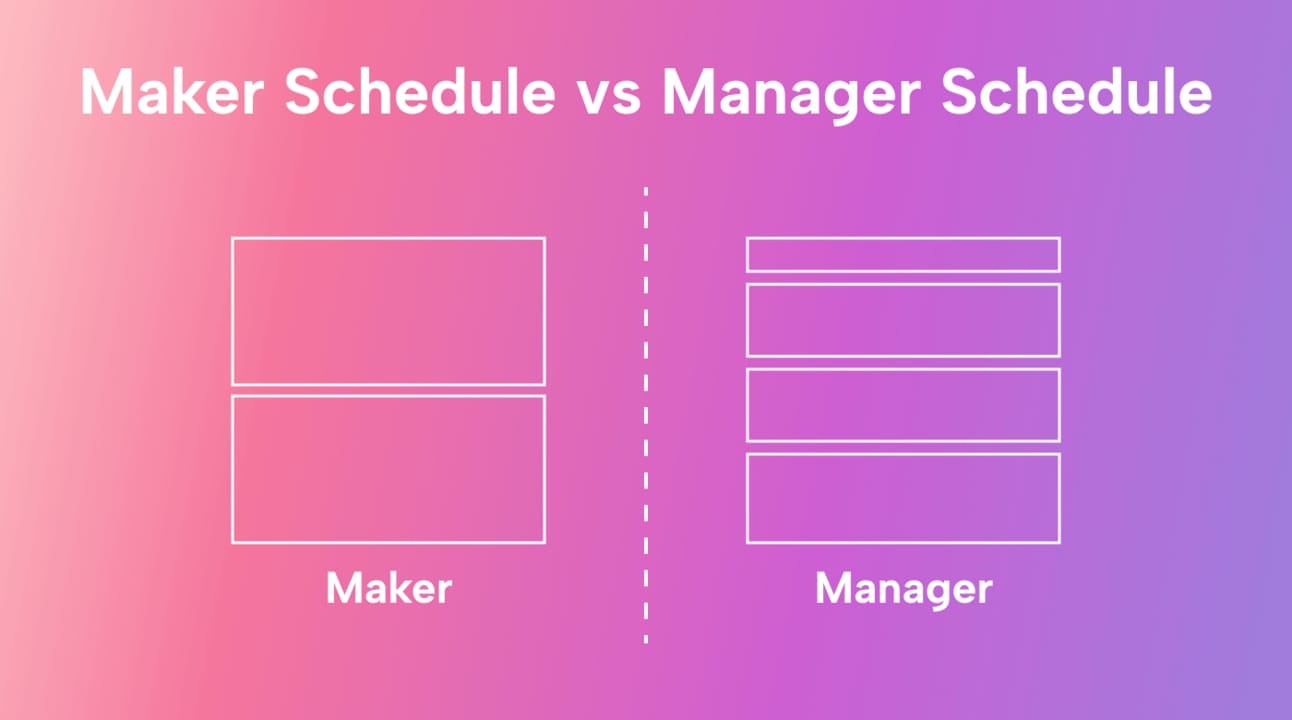- The Bookt Shelf
- Posts
- Maker vs. Manager: Paul Graham
Maker vs. Manager: Paul Graham
Paul Graham's essay "Maker's Schedule, Manager's Schedule" examines the stark contrast between two different ways of working and how understanding this can improve productivity and collaboration.


Did you know: During the development of the first iPhone, Apple engineers would work late into the night to protect their deep work time - avoiding meetings and distractions during the day so they could focus on building groundbreaking technology.
What to expect: Paul Graham's essay "Maker's Schedule, Manager's Schedule" examines the stark contrast between two different ways of working and how understanding this can improve productivity and collaboration.
Balancing Two Modes of Work: Maker vs. Manager
Today, let's focus on a concept that affects how you plan your day and interact with your team: the Maker's Schedule vs. the Manager's Schedule.
Maker’s Schedule: Makers - such as developers, writers, or designers - thrive on long, uninterrupted blocks of time. They need this space to immerse themselves in deep work and creativity.
Manager’s Schedule: Managers, on the other hand, operate in a more fragmented way. Their days are often broken into smaller segments, filled with meetings, check-ins, and quick decisions.
Why does this matter for your startup?
Protect Maker Time: If you're a maker or have makers on your team, schedule large chunks of time for focused work without interruptions.
Communicate Clearly with Managers: Managers tend to schedule meetings more freely. If you're on a maker’s schedule, help managers understand the impact of disrupting your flow and suggest consolidating meetings to avoid multiple interruptions.
Find the Right Balance: Both schedules are necessary for a successful company. The challenge is figuring out how to respect and balance the needs of makers and managers without sacrificing either productivity or coordination.
This week, consider how you can align your own schedule or your team’s with this concept. Can you minimize disruptions for your makers, while still allowing managers to stay on track? The balance you strike can make all the difference in moving your startup forward.


